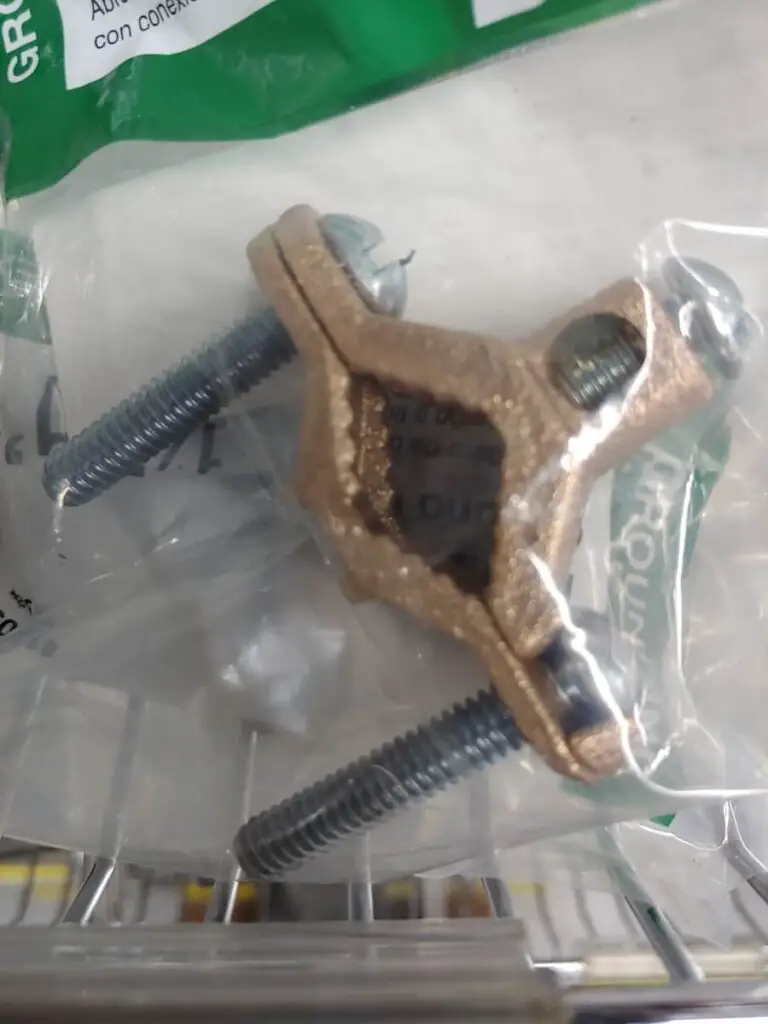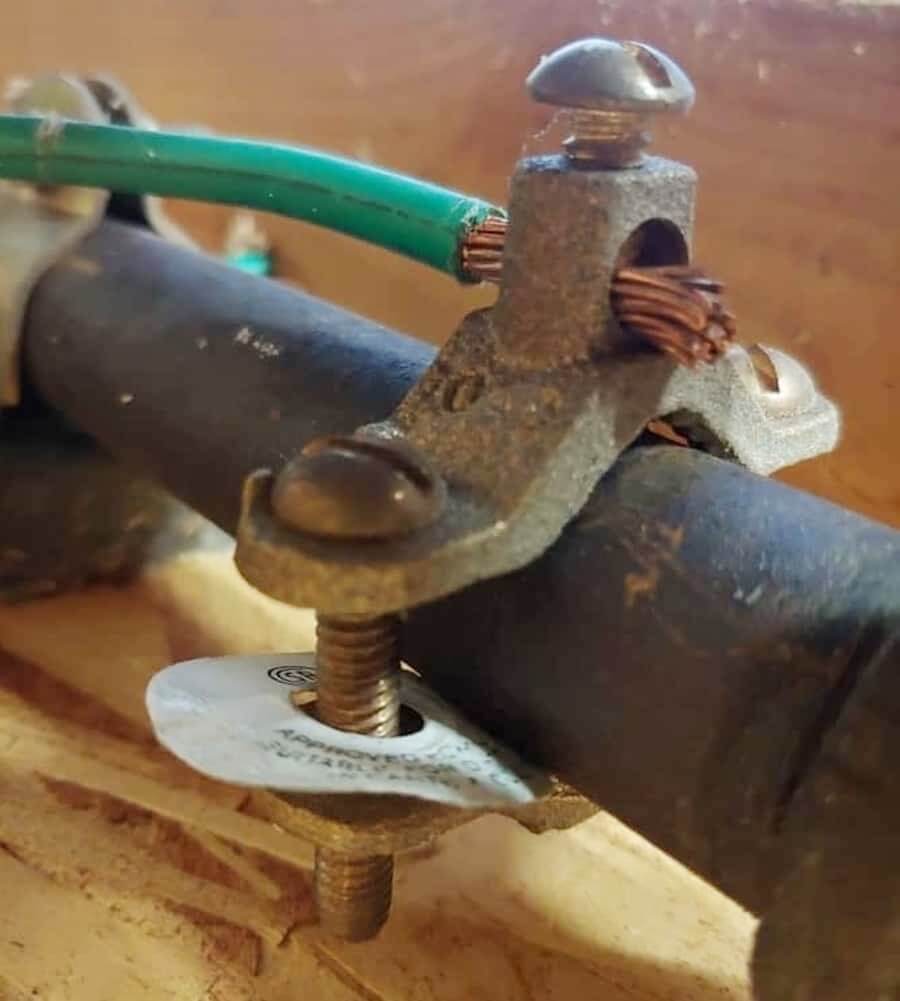Gas piping does not need a separate ground. You can bond gas pipe to the conductor that serves the equipment.
Mechanical codes have improved over the years to ensure our homes and businesses’ safety and overall integrity. Bonding gas pipes to a proper ground is one of those improvements.
If you are in the midst of a do-it-yourself gas piping job or upgrading an older home, then bonding your gas pipe to a proper ground would be the right thing to do. Electrical codes are complicated, and you can get the job done right by obtaining a county permit and inspecting your work.
In my experience, county inspectors work very well with homeowners. They work better with homeowners than with contractors. There is hardly any aspect of home improvement that a homeowner can’t do without a contractor. This includes electrical and gas piping in most jurisdictions.
Hazards do exist, and you should research those safety precautions before proceeding.
However, permits are still required in many cases, and because all counties vary slightly on rules and regulations, only by consulting with your local building department can you fully determine the work requiring permits.

It’s also a good way to get some instruction. And, who better to instruct you than the people who will inspect your work? An on-the-ball inspector may even recognize your abilities and tell you if they think you should tackle such a project.
I’ve done work in multiple counties, and it takes a little while to learn the ins and outs of each county, to say nothing about the differences between the individual inspectors.
As I said, codes can be complicated, and inspectors can interpret these codes differently. Sometimes, we all see things a little differently.
Does CounterStrike CSST Need To Be Bonded?
There are different types of gas pipes, and the reasons for bonding are also different.
TracPipe manufactures a product called CounterStrike. The installation instructions for CounterStrike CSST gas pipe don’t require additional bonding because the outer black jacket or covering is a special material designed to help dissipate any energy a lightning strike creates.
The black conductive jacket of CounterStrike® has been shown to be up to 400 times more resistant to the damaging effects of electrical energy than yellow CSST. It also lays straighter and pulls easier than yellow CSST.
TracPipe.com
Again, remember that local codes rule and local inspectors rule best. My head starts spinning when I read some of these articles and quotes of electrical code. One says that no additional bonding is required, and the following sentence says it is to be bonded in accordance with the current code.
Systems made up of black iron (steel) pipe are bonded to prevent electrical shock in case the pipe comes into contact with an electrical circuit. But, the newer yellow corrugated stainless steel tubing must also be grounded to avoid exploding if lightning strikes.
Fires have been started, and homes have been destroyed by fire. An article written by Scott Friedman, reported by NBC 5 in Fort Worth, Texas, said, “punched a number of tiny holes in the thin wall.”
The jury is still out in proving the safest way to install corrugated stainless steel gas piping. It would be best if you shied away from corrugated gas pipes in areas of excessive thunder and lightning storms.
How Do You Ground A Residential Gas Pipe?
It’s not enough to attach a wire to a gas pipe with any old clamp in your junk drawer. It has to be an approved clamp. Not just any wire of any size can be inserted into the clamp.

This ground clamp has a #8 wire to the grounded bus inside the electric panel. I’m not an electrician, so I followed the instructions from my county inspector, who said I should match the gas pipe bonding wire size to the grounding rod outside my shop.
There are instances where you can bond your gas pipe to the equipment being fed by the pipe as long as that equipment has proper grounding.
Listen to your county inspectors. They have been wrong before, but it’s not very often. In some areas, they have a bad reputation. A group of us contractors got an inspector fired because he was such a butthead. These are rare cases.
Some people have a problem drawing the line between the textbook and common sense.
Do I Need A Separate Ground Rod For Gas Line?
When the code book says “electrical bonding,” it means attaching to other grounds, like bonding with your kids or parents. You don’t go out and get new kids; you connect to the ones you have.
A separate grounding rod would not be necessary or even advisable in complying with local code restrictions. It would be cheaper and easier in most cases to bond the gas pipe to an existing ground or equipment being fed by the gas pipe that is properly grounded.
As referenced in en.wikipedia.org, “Electrical bonding is the practice of intentionally electrically connecting all exposed metal items not designed to carry electricity in a room or building as protection from electric shock.”
Bonding gas pipe to water pipe is not an approved bond or ground.
Just think briefly about all the metal pipes in a house—mainly water and gas. If, for some reason, one of these metal pipes comes in contact with a source of electricity, it would be “hot” or a very dangerous source of electricity that could be touched or come into contact with who knows who.
Unless that metal pipe has a path to ground, all safeties are off. With all piping grounded and bonded, the safety is on, and when that pipe becomes “hot, ” the breakers will hopefully trip. Electricity will take the shortest path to the ground.
Have you ever had an appliance like a washer or dryer that seemed to give you a little jolt every so often when you touched it?
A real-life example of how inconspicuously this can happen occurred on a service call one day. A restaurant owner said every time he touched his stainless steel sink and touched something else nearby that was metal, he got a severe shock.
When they mounted the sink to the wall, which wasn’t that long ago before the service call, the installer ran a screw into the wall and right into a wire inside the wall. Typically, sinks are not bonded, so the path of electricity was to whatever ground it could find, which was when he touched the sink and another grounded object.
